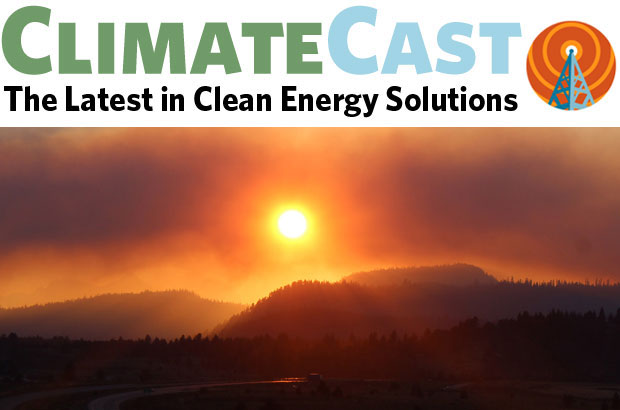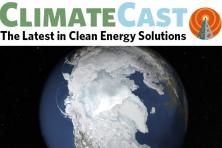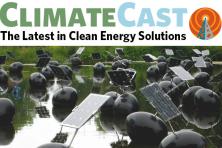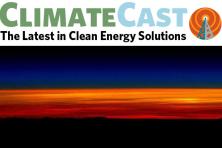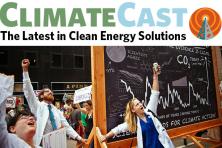California dreaming now looks like reality: 100% clean energy
In California, lawmakers this week took a dramatic step towards a commitment to achieve 100 percent clean electricity by 2045. The State Assembly approved SB100, which will require the state to get all of its electrical power from carbon-free sources within less than three decades. The State Senate already passed its version of the bill; the measure is expected to receive final approval, including the Governor's signature. within the next month. California will be the second state to commit to 100% clean energy; the state is also the world's fifth largest economy, increasing the likelihood that its new clean energy commitment will be hugely influential.
The EPA may gut the Clean Power Plan, but coal is on its way out
Last week, the Trump administration announced its long-anticipated plan to gut the Obama-era Clean Power Plan. The new proposal would set back U.S. efforts to mitigate climate change, in part by granting a series of favors to the coal industry. Responding to the administration’s plan, a coalition representing 17 states, the District of Columbia, four cities and one county vowed to take legal action to block the rollbacks. In addition, analysts say the plan will not save the coal industry.
The price of cleaner fuels and renewables is falling steadily, and coal plant owners are closing some 270 coal plants nationwide, more than half the total. Coal used to be synonymous with cheap electricity, but that’s changing too. Residents in Appalachia are experiencing crippling electric bills as mines shut down and people move away. Customers are shouldering the costs of closing coal plants and cleaning up the toxic messes they leave behind, and utilities are spreading fixed costs across fewer customers. In Tennessee, a major utility provider has announced plans to hike rates, and will also consider shutting down older coal plants in the coming years.
Let’s build a pipeline... of mini solar grids
A Colorado-based renewable energy firm is considering building a pipeline of mini solar grids. The $500 million project would create 550 mini-grids across Africa, Asia and Latin America, adding up to 150 megawatts of solar capacity and 275,000 connections across 21 countries. Supersized solar farms are sprouting up around the world, owned and operated by multiple entities and benefiting from economies of scale. What will be the largest solar farm in the world is in development in Egypt, which will generate as much energy as two nuclear power plants when it is completed next year.
Renewable energy recently reached an exciting new milestone: one trillion watts of clean power generation capacity has been installed, a feat that took 40 years. How long will it take to reach the next trillion? Analysts estimate the next trillion will be installed within the next five years. This growth is great news for employment in the clean energy economy, as a new report shows that more than 714,000 people already work in clean energy industries across the Midwest alone.
Heat: the next big inequality issue
In a summer of ravaging heat waves across the globe, it’s the poor and isolated who are most at risk. In the U.S., immigrant workers are three times more likely to die from heat exposure than American citizens. Across the world, people are sharing their personal stories of how heat is impacting their lives, from new parents jumping off a hot bus in the middle of traffic to save their overheated newborn, to people with cardiac problems spending their days in air conditioned shopping malls just to survive the heat. Check out one of these new maps to find out how long your city will be livable without air conditioning.
Climate change means smoky summers will be more frequent, experts say
Some are calling 2018 “the year of the lost summer“ due to its extensive smoke. Communities have spent more summertime days indoors, and many are experiencing an emotional toll. Experts say smoky summers will become all the more common in the coming decades. Wildfire season in the Pacific Northwest is now more than three months longer on average compared with the 1970s, and the largest wildfire on record for more than half the states in the American West has occurred since 2000. There’s so much smoke that it has engulfed a subtropical storm in the Atlantic, thousands of miles from the Canadian and California wildfires. California is now using prison inmates help fight the fires, dangerous work for the paltry rate of $1 per hour plus $2 per day.
Making EVs more accessible to all
From rickshaws to buses, cars to delivery trucks, electric vehicles are going mainstream, and becoming more widespread in developing nations. There’s even a new electric vehicle that charges while you drive, thanks to solar panels located right on the vehicle. Unlike most EVs with solar panels, which typically only power one feature, like the air conditioning, this new EV has a 155-mile range and high-power rapid recharging, which allows an 80 percent charge in 30 minutes. The panels can add up to 18 miles of range. Big Oil is looking to get in on the trend, rolling out EV charging stations similar in make-up to how traditional gas stations are now.
Frustrating politics
A few weeks ago, ClimateCast shared the news of the Democratic National Committee’s bold move to ban campaign contributions from fossil fuels. It turns out we spoke too soon. Last week, the DNC abruptly reversed course, passing a new resolution welcoming donations from fossil fuel companies.. The move outraged party grassroots, some of whom disrupted a DNC meeting to protest the ban’s reversal. On the other side of the aisle, the Trump administration recently declared in a new policy statement that “conserving oil is no longer an economic imperative for the U.S.”
In brief: REI joins long list of business supporters of Washington Initiative 1631
The outdoor recreation giant REI has joined the growing list of businesses supporting Washington State’s clean energy ballot measure, Initiative 1631, saying that “the health of the outdoor community depends on the health of the natural environment and I-1631 would invest significantly in both.” The company also urged other businesses to support the initiative: “This is not a niche or partisan effort. It is a choice to take action for our collective future… together, we can show that communities can agree and work toward a common goal.” Thank you, REI, for your leadership on climate!
